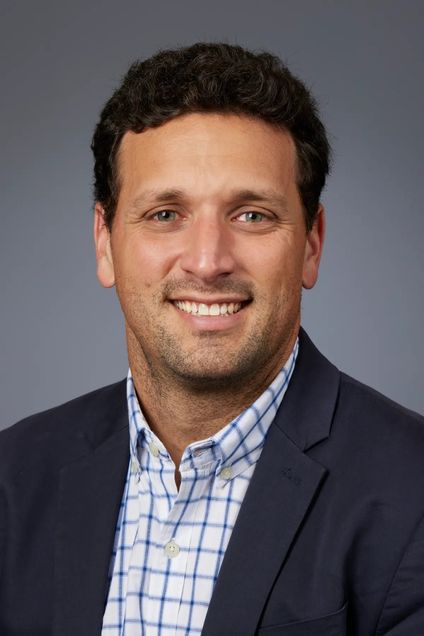Mentor Spotlight: Michael Alosco, PhD

Dr. Michael Alosco, Associate Professor of Neurology
Dr. Michael Alosco is a clinical neuropsychologist and Research Vice Chair and Associate Professor of Neurology. He completed my PhD in clinical neuropsychology at Kent State University with a focus on dementia care and clinical research. Dr. Alosco joined BU in 2015 for his neuropsychology and neuroscience post-doctoral fellowship at the BU Alzheimer’s Disease Research Center and BU CTE Center. He then joined faculty as Assistant Professor of Neurology in 2018 and was promoted to Associate Professor in 2020.
His research program has a focus on: (1) the development of in vivo biomarkers for Alzheimer’s disease and Alzheimer’s disease related dementias including CTE; (2) the contribution of cerebrovascular disease to the clinical and neuropathological expression of CTE and other forms of dementias; and (3) the relationship between repetitive traumatic brain injuries with cognitive and neuropsychiatric decline, and neurodegenerative disease(s).
Dr. Alosco, the BU CTE Center’s codirector of clinical research, will help lead the DIAGNOSE CTE Research Project-II, which was awarded $15 million by the National Institutes of Health (NIH). The study focuses on examining potential biomarkers using block and brain imagining, to help doctors accurately diagnose CTE in living patients. “This study will create unprecedented datasets needed to accurately diagnose CTE during life,” says Michael Alosco. “It will fill two missing links in the literature preventing us from developing definitive diagnostic criteria for CTE during life. First, we need longitudinal studies that include brain donation. Second, we need to better compare people at risk for CTE to other disease groups.”
Dr. Alosco On Mentorship: Mentorship is the most rewarding part of my career. It brings me such joy to celebrate trainee successes and to see their successes help them reach their career goals. I think that many students are hesitant to engage in research due to time commitment and bandwidth. This is very real, but I would also say that there is an opportunity for all – from those who want a first author publication (highest level of commitment) to those who just want to be around the lab to gain exposure. Both are equally important. Whether directly or indirectly, research will be part of your career as a healthcare provider and my goal as a mentor is to leave the trainee wanting more.
There are three pillars to success in research: persistence, teamwork, and writing. Rejection is part of the game, making persistence essential for success. Research involves a team – I am quick to correct trainees when they use “I” or “me”. Having and maintaining collaborative relationships is necessary. Finally, writing, writing, writing, and more writing. You need to be able to clearly articulate your ideas and science, and this takes repetitive practice and mentorship focused on scientific writing.
Medical students are an important part of a thriving lab and they have made substantial contributions to my lab since I joined the faculty. We have a broad scope of data sets and research that medical students have leveraged. Here are a few students who I have worked with:
- Michelle Safransky was the first author of a study published in Neurology that examined the concordance between cerebrospinal fluid markers of amyloid and tau and Alzheimer’s disease neuropathology (https://pubmed.ncbi.nlm.nih.gov/39496102/).
- Ryan Conrad recently presented his work at the American Academy of Neurology (AAN) that examined the relationship between loneliness and cognitive and neuropsychiatric outcomes in former American football players at risk for CTE.
- Madeline Morrison has worked with the BU ADRC and BU CTE Center for many years (before and now during medical school) and she led a first author publication that examined the association between plasma biomarkers of tau and Alzheimer’s disease neuropathology (https://pubmed.ncbi.nlm.nih.gov/35554506/).
- Some of the other medical students in the lab (Omar John, Jordan Broadnax, Sarah Chang) are conducting studies on risk factors and biomarkers for CTE.